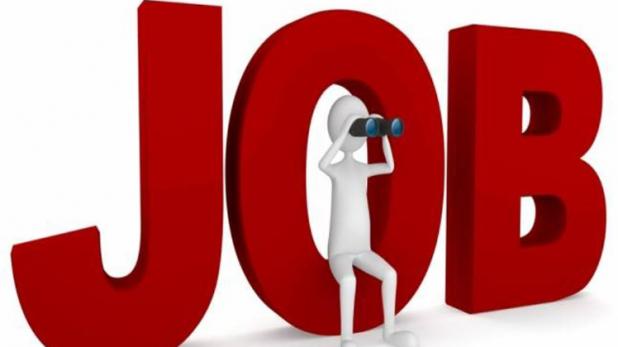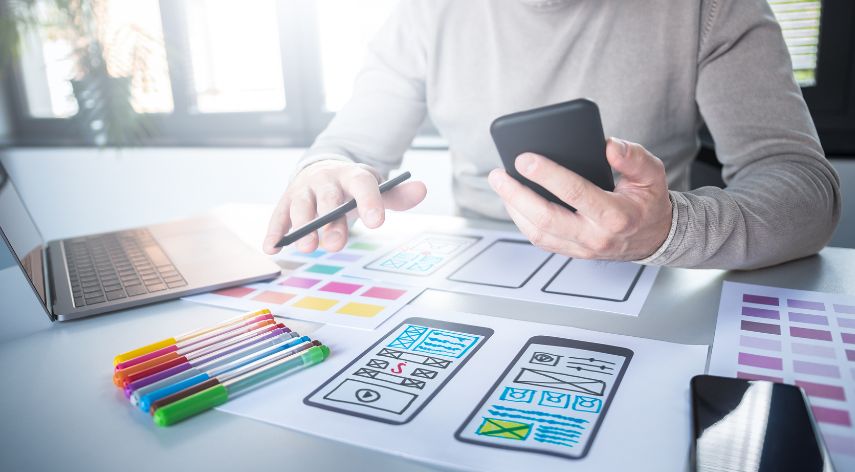7 Tips for Preparing for a Job Interview

Imagine yourself standing there in front of the hiring manager squarely in your sights. You know that you’re the perfect fit for this position, and now all that’s left to do is show the interviewer how great of a potential employee you are!
If only it were that simple. Don’t be the person that stakes their fortunes in a future with a company, only to find themselves very much not prepared.
Instead, use this guide to start preparing for a job interview and ace that pivotal moment that gets you through the gates of career growth.
Table of Contents
Toggle1. Research the Company
Researching the company before an interview is important in order to understand its mission and vision. It will also help you prepare questions and prove your knowledge of the company and the industry.
Start by reading the company website and noting down important information. Use LinkedIn, Google, and other social networks to research further to get an idea of their background. Look up the company’s annual reports and industry news to see their performance, trends, and recent announcements.
Once you have this information, you’ll be better prepared to speak confidently about the company at the interview. Doing your research will also show the interviewer you’ve taken the initiative and initiative is important.
2. Study the Job Description
When studying the job description, break down each job requirement and consider how your specific skills, experiences, qualifications, and motivations will enable you to meet them. Take time to familiarize yourself with the work they do.
Make sure the job fits your career objectives and make sure to have an informed and confident opinion on why you are the right fit for the job. Preparing through these small steps will show your potential employer that you have what it takes to do the job.
3. Practice Your Responses
It’s important to practice your responses to common job interview questions. Spend time coming up with excellent answers to common queries such as ‘tell me about yourself’ and ‘describe a challenge you have faced and how you overcame it’.
Rehearse with a friend or family member to gain confidence in your delivery and experience in responding to job interviews. Make sure to practice speaking out loud in front of a mirror or recording yourself so you can hear and critique your delivery. Your responses should be concise and relevant and demonstrate the skills and experience you bring to the table.
4. Dress Appropriately
It is important to wear clothing that is neat, clean, and professional in appearance. Men should aim for a dress shirt and tie, dress slacks, dark socks, and dress shoes. Women should opt for a blouse, pencil skirt, or pantsuit, along with a pair of closed-toed, dress shoes.
Accessories should be kept to a minimum, and hair should be neat and out of the face. Refrain from wearing perfume, aftershave, or fragrances to the interview. Colors should be in shades of navy blue, gray, black, or brown, and if you are unsure of what to wear, it is generally safer to err on the side of more formal attire.
5. Bring Relevant Materials
Remember that the employer is looking for your level of preparedness and professionalism. Bring extra copies of your resume and any other relevant documents, in case you need to give them to multiple interviewers or if something happens to the original copies.
The best paying jobs usually require samples of your work or a portfolio that is relevant to the position, bring them with you to the interview. This can help prove your skills and experience in a tangible way.
If you plan to bring electronic materials such as a laptop or tablet, make sure they are fully charged and in good working order. Be aware that some companies may not allow electronic devices in the interview room, so it’s always best to check in advance.
6. Plan Your Route
Plan your route before your interview. Knowing where you’re going in advance gives you peace of mind, and allows you to be on time. Take into account any traffic or transit delays, as well as any construction that might cause delays.
If you can, use Google Maps to estimate how long it will take you to arrive at the interview. Check-in at least 30 minutes before the start of your interview. This gives you time to freshen up if necessary, review the job description, and familiarize yourself with the building.
Remember to turn your phone off before entering the interview room, or turn it on silent, and leave it in your pocket or bag. You don’t want distractions to be a factor during your interview. Good preparation and planning will help you focus on being your best during the interview and leave a great impression.
7. Follow Up
Following up after an interview is a critical step in the job search. Send a thank-you note to each interviewer as soon as possible, within 24 hours. This should be sent via email, and it should express your appreciation for the opportunity to interview and reiterate your interest in the position.
Reach out one to two weeks after the interview. Email is often the best form of communication in this case. During this follow-up, you might touch on something discussed during the interview or highlight a particular experience you have that would be an asset to the position.
Start Preparing for a Job Interview Today
Preparing for a job interview is an essential part of securing the job you want. Remember, interviews are just as much a time for you to learn about the company as it is for the company to learn about you.
Make the impression that you can bring value to the organization and get hired today!
Did you find this article helpful? Check out the rest of our blogs!
Patty Souza, an accomplished education and career expert, leverages a wealth of knowledge to guide individuals towards professional success. Patty's insights are a beacon for those navigating the educational and career landscape, providing trustworthy advice that transforms aspirations into achievements.
Recommended For You
Spread the loveThere are many things for a contractor to worry about on the job site. Lumber theft, accidents, and
Spread the loveAre you struggling to come up with new and innovative recruiting ideas? Because the COVID-19 pandemic disrupted the
Spread the loveGovernment jobs, the epitome of stability and security, have always been a topic of interest and aspiration for





